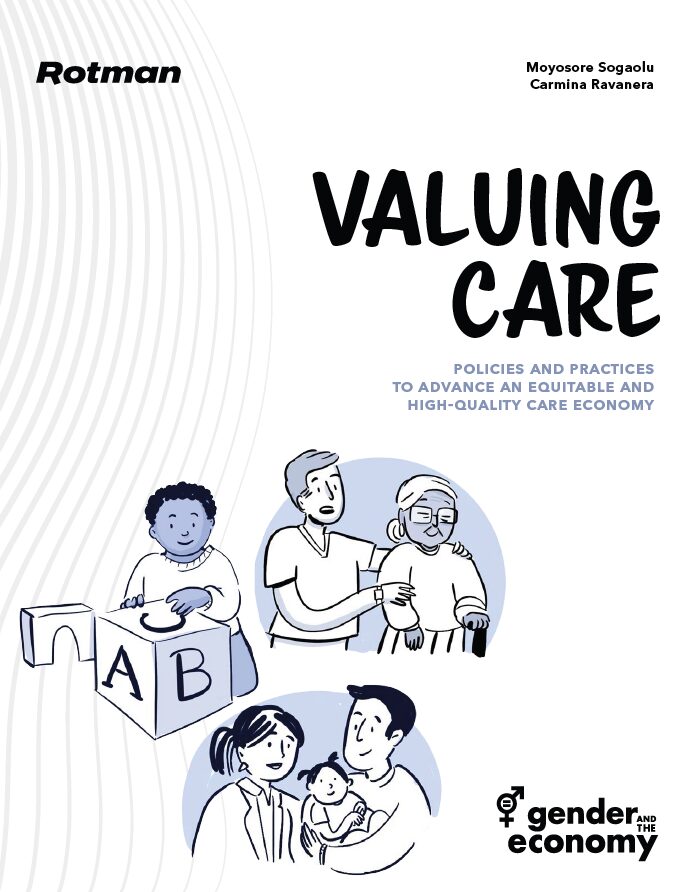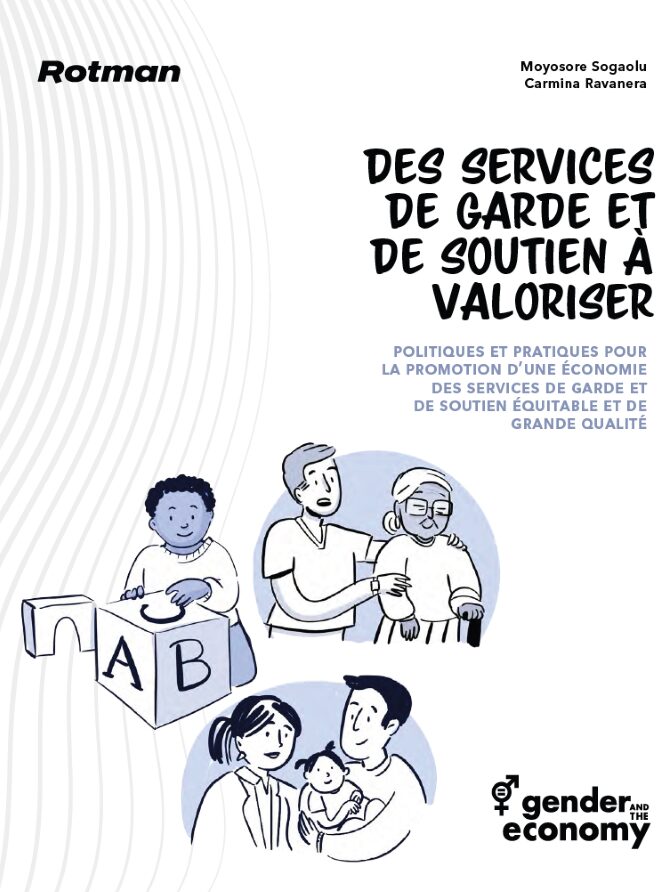Care is the invisible infrastructure that sustains our societies and economies. Every one of us has needed care in the past, and all of us will rely on it again as we age. Many also provide care, whether for children, elders, or others in need, often at great personal and economic cost. Yet, care remains undervalued, underfunded, and overlooked in public policy, even though it underpins our communities and drives economic productivity. At a moment of demographic change, global inequality, and rising demand, investing in care is not only a moral imperative but also an economic necessity.
The research covered in this report suggests several policy implications for governments and employers in creating more equitable, high-quality, and resilient care systems. A focus on improving care systems will improve outcomes for care recipients as well as the caregivers who support them. Policy can aim to ensure that everyone has access to high-quality care, especially those belonging to marginalized communities, that carers are working in fair conditions with sustainable wages, and that future trends relating to migration, aging populations, technology, and climate change are key considerations.
- Public investment in care systems, such as universal or targeted care systems and subsidies, benefits families, the economy, and care workers, and advances gender equality. These systems help unpaid carers share responsibilities, which in turn fosters women’s participation in the workforce and improves well-being for caregivers and care recipients. However, to ensure high-quality care for all who need it, policymakers can focus on mitigating issues that may arise from publicly funded care programs. These include excess demand, a lack of spaces for all those who need them, and inequity in access for groups who face marginalization.
- Employers that support caregivers through providing care benefits may see gains in recruitment and retention, productivity, and job satisfaction, as well as reducing employee absences. Benefits may include care stipends, care services on or near-site, paid parental leave, and employee assistance programs for caregivers.
- Excluding unpaid care from economic measurement conceals its significance for women’s employment and income, as well as for family well-being, especially when public care options are unavailable. Prioritizing the measurement of unpaid care is essential for improving the accuracy of economic and social policy design related to care provision and labour market outcomes.
- Prioritizing stability and well-being of care workers through improving job quality and wages will result in higher quality care systems for both care recipients and caregivers, and will help increase the supply of care workers. Better working conditions will also mitigate gender and racial inequalities and better support immigrants, since most care workers are women and racialized and immigrant women are disproportionately represented as carers. Improving working conditions in the sector may also encourage more men to participate.
- One-size-fits-all solutions will not work effectively to reduce inequalities in care systems. Public care policies will be more robust and reduce bias in access to care through consideration of differing experiences, cultures, and histories of marginalized families, such as those who are low-income, Indigenous, and racialized groups.
- Care policies can become more resilient to global trends such as rapidly aging populations, as well as the climate crisis and resulting migration patterns, by preparing proactively rather than reacting after the fact.
The report is based on insights and themes presented at The University of Toronto Institute for Gender and the Economy’s research April 29, 2025 roundtable: “Advancing the Care Economy: Policies and Practices for Equitable and High-Quality Care.” Speakers included multi-disciplinary scholars who shared research findings on the future of the care economy, including Samantha Burns (University of Toronto), Maria Floro (American University), Ludovica Gambaro (Federal Institute for Population Research, Germany), Pilar Gonalons-Pons (University of Pennsylvania), Eva Jewell (Toronto Metropolitan University), Laura Lam (University of Toronto), Guida Man (York University), Izumi Niki (University of Toronto), LaShawnDa Pittman (University of Washington), Susan Prentice (University of Manitoba), Moyosore Sogaolu (University of Toronto), Carieta Thomas (Carleton University), and Brenda Yeoh (National University Singapore).


DOWNLOAD THE FULL REPORT (IN ENGLISH/EN FRANÇAIS)
The report was written by Moyosore Sogaolu and Carmina Ravanera and was supported by the Social Sciences and Humanities Research Council of Canada and SDGs@UofT.







